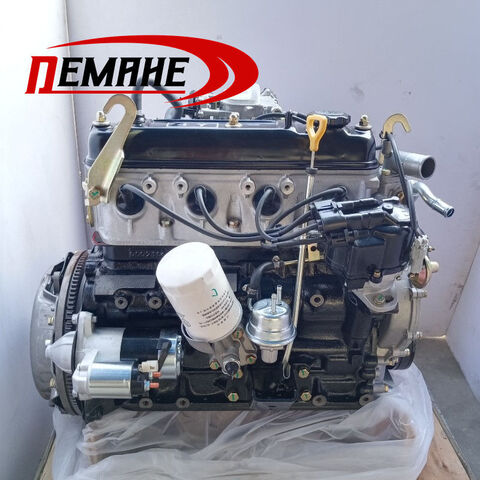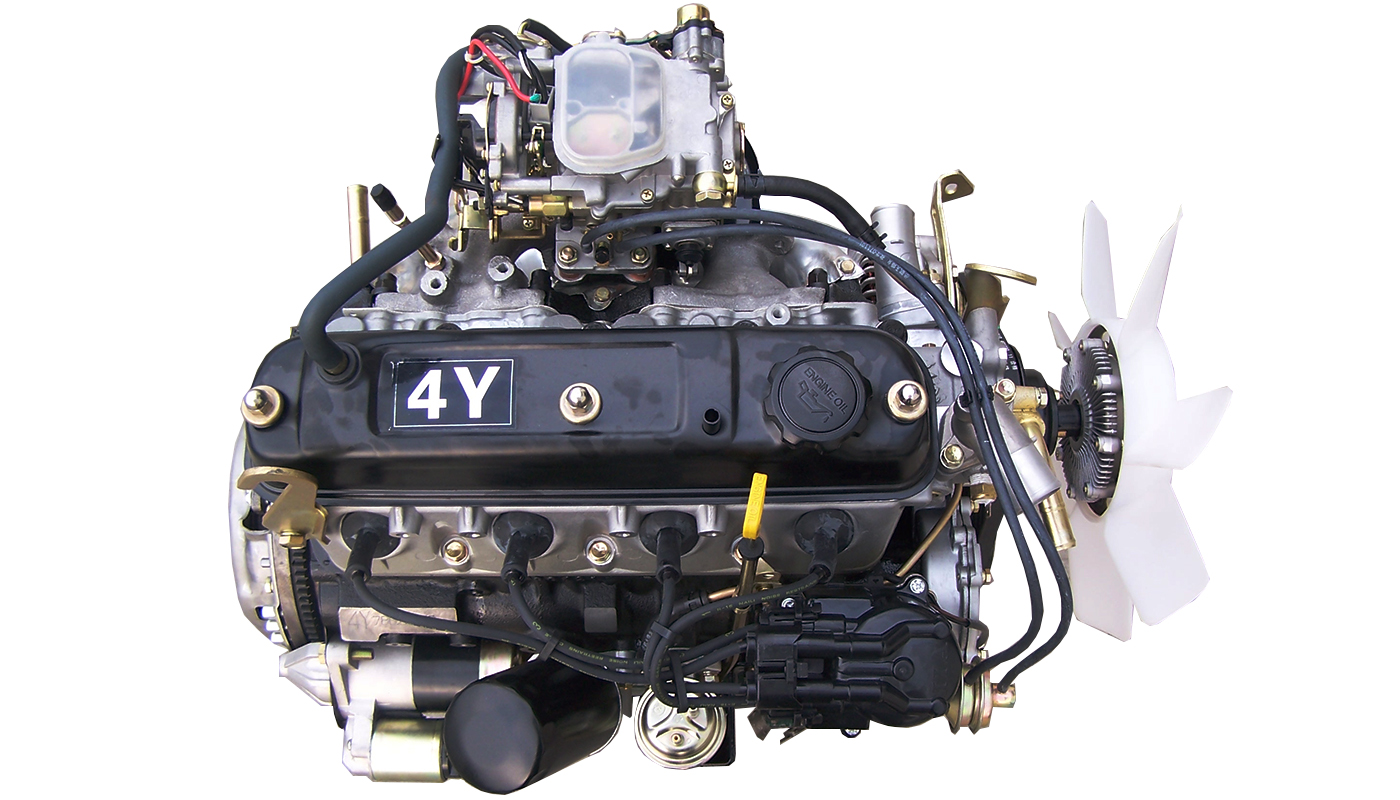Discovering the Numerous Kinds Of Engine: Which One Fits Your Requirements?
Inner burning engines continue to control due to their integrity, while electric engines are gaining grip for their sustainability. Crossbreed engines provide a versatile concession, and diesel engines stand out for their power in demanding applications.

Inner Combustion Engines
Interior combustion engines (ICEs) are the foundation of contemporary transport, powering a vast array of lorries from cars and trucks to airplanes. These engines run on the principle of transforming fuel into mechanical power through a collection of controlled surges within a combustion chamber. One of the most common kinds of ICEs include fuel engines, diesel engines, and rotating engines, each created to meet details performance and performance needs.
Fuel engines generally make use of spark ignition, while diesel engines count on compression ignition, resulting in distinctive differences in fuel performance and power result (4y engine). Rotary engines, or Wankel engines, use a compact style and smooth procedure, but are less frequently used in mainstream applications
ICEs have actually gone through substantial advancements in innovation, consisting of the intro of turbocharging and gas shot systems, which boost overall effectiveness and efficiency. Regardless of their efficiency improvements, ICEs deal with raising scrutiny because of their ecological influence, specifically regarding greenhouse gas emissions. As the vehicle sector advances, the future of ICEs stays a subject of discussion, stabilizing efficiency, efficiency, and environmental considerations. Nevertheless, they continue to play a vital duty in worldwide transportation framework.
Electric Engines
As issues regarding ecological sustainability and fossil fuel dependency expand, electrical engines have emerged as an engaging choice to interior burning engines. These engines utilize electrical motors powered by batteries or gas cells, providing a cleaner and much more efficient motive powers.
One of the primary advantages of electric engines is their reduced emissions. Unlike traditional engines that melt nonrenewable fuel sources, electric engines generate no tailpipe emissions, dramatically reducing air contamination and adding to enhanced public health and wellness. Additionally, the efficiency of electric motors commonly surpasses that of internal combustion engines, converting a better proportion of energy from the power source right into functional power for movement.
Electric engines are additionally significant for their silent operation, making them perfect for urban environments. 4y engine. The simplicity of their style leads to less relocating parts, which can result in reduced upkeep costs and raised integrity with time
Nevertheless, obstacles remain, including battery manufacturing effects, charging framework, and range restrictions. Despite these difficulties, the growing investment in electrical lorry technology and sustainable power sources factors towards a promising future for electric engines, placed to play an essential duty in the change toward sustainable transport.
Hybrid Engines
Mixing the benefits of both electric and typical interior burning engines, hybrid engines stand for a versatile option in the quest for efficient and sustainable transportation. These engines integrate a gas or diesel motor with an electrical motor, permitting boosted fuel efficiency and minimized exhausts contrasted to standard vehicles.
Hybrid engines operate in several modes, utilizing the electric motor for low-speed driving and the internal combustion engine for greater rates or when even more power is required. This vibrant procedure not only improves fuel economic situation but also adds to a smoother driving experience. Regenerative braking is an additional critical feature, recording power usually lost during braking and rerouting it to reenergize the battery.

As customers progressively prioritize eco-friendliness, crossbreed engines attract attention as a useful choice, offering an efficient balance of efficiency, effectiveness, and environmental duty. This flexibility makes them appropriate for city commuting and long-distance traveling alike.
Diesel Engines
Efficiency and power are trademarks of diesel engines, which have actually long been preferred for their robustness visit our website and gas economy. These engines run on the principle of compression ignition, where air is pressed to a high temperature level prior to gas is injected, sparking it without the need for ignition system. This process allows diesel engines to achieve higher thermal performance compared to gas engines, converting into much better gas gas mileage and lower co2 exhausts.
Diesel engines are especially appropriate for durable applications such as vehicles, buses, and industrial machinery, where torque and toughness are paramount. Their design normally consists of more powerful parts to stand up to the greater stress created throughout procedure, causing longer service life and decreased upkeep prices.

Alternate Fuel Engines
While diesel engines have lengthy dominated the landscape of heavy-duty power resources, alternate fuel engines are gaining grip as feasible alternatives for a much more sustainable future. These engines make use of a range of fuels, such as pressed gas (CNG), lp, ethanol, and hydrogen, aiming to lower greenhouse gas discharges and reliance on nonrenewable fuel sources.
One considerable advantage of different fuel engines is their possible to lower carbon impacts. For instance, CNG engines produce fewer contaminants compared to typical diesel engines, making them ideal for urban transportation systems and fleets seeking to improve air quality. Ethanol, originated from biomass, not just reduces discharges but likewise sustains agricultural economic situations.
Hydrogen gas cells stand for an advanced growth in this realm, providing zero-emission power with a chemical reaction between hydrogen and oxygen. Obstacles such as facilities growth and manufacturing costs continue to be obstacles to extensive fostering.
Conclusion
Interior burning engines offer reliability, while electrical engines focus on sustainability and minimized maintenance. Hybrid engines incorporate the benefits of both, enhancing performance, whereas diesel engines give remarkable power and torque for durable applications.
Hybrid engines offer a functional concession, and diesel engines stand out for their power in demanding applications. find this The most usual kinds of ICEs include gasoline engines, diesel engines, and rotating engines, each developed to meet details efficiency and efficiency demands.
Unlike conventional engines that burn fossil gas, electric engines produce absolutely no tailpipe emissions, significantly reducing air pollution and adding to enhanced public health and wellness.Hybrid engines run in several settings, utilizing the electrical motor for low-speed driving and the internal burning engine for higher rates or when even more power is needed. Crossbreed engines combine the benefits of both, enhancing performance, whereas diesel engines offer premium power and torque for durable applications.
 Tahj Mowry Then & Now!
Tahj Mowry Then & Now! Andrew Keegan Then & Now!
Andrew Keegan Then & Now! Brandy Then & Now!
Brandy Then & Now! Tina Louise Then & Now!
Tina Louise Then & Now! Robin McGraw Then & Now!
Robin McGraw Then & Now!